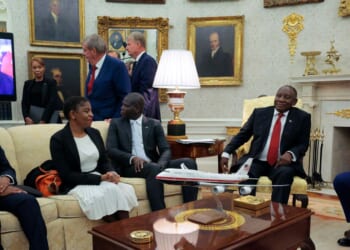Throughout the ongoing war in Ukraine, Kyiv has overcome its shortfalls in traditional munitions through the effective use of cheap, mass-produced drones. Moscow has followed suit.
As the war in Ukraine enters its fourth year, both sides have come to rely extensively on unmanned aerial vehicles (UAVs), better known as drones. Moscow and Kyiv have each relied extensively on drones to fill a wide range of roles within their armies, including reconnaissance, logistical support, mining and demining, and direct attacks on enemy soldiers. Perhaps surprisingly, many of these drones are not military drones, but civilian ones adapted to combat. What effect have these drones had on the battlefield, and on the two sides’ war strategies?
At the start of the conflict, Ukraine was the pioneer in drone technology, using them effectively to overcome its deficit in more conventional weapons such as artillery. Over time, as the war has evolved, both sides have learned from the other, utilizing increasingly sophisticated drone systems to take the roles of conventional munitions. How has Russia adapted drones for its own use? Has it succeeded in catching up to the Ukrainians, and has it exceeded their drone program in any areas?
The ongoing conflict in Ukraine is the largest conventional war of the twenty-first century, and the first major war to rely extensively on drone technology. As Russia and Ukraine have refined the use of drones for military purposes, public knowledge of drone warfare has increased, and determined actors can now easily find online guidance for building and using cheap military drones. To what extent is the drone war in Ukraine specific to local conditions, and to what extent does it have broader lessons for militaries everywhere?
In this episode of Three Questions, Paul Saunders speaks with Samuel Bendett, an advisor at the Russian Studies Program of the Center for Naval Analyses. In his role at CNA, Mr. Bendett is a military analyst specializing in uncrewed, robotic and autonomous military systems and artificial intelligence. He has also worked at the National Defense University on emerging and disruptive technologies, as well as for the U.S. Congress, the private sector, and nonprofit organizations on foreign policy, international conflict resolution, and defense and security issues.
Image: Shutterstock / Goinyk Production.















